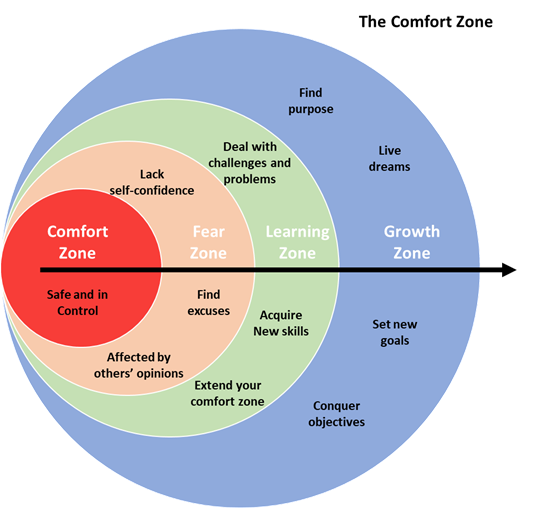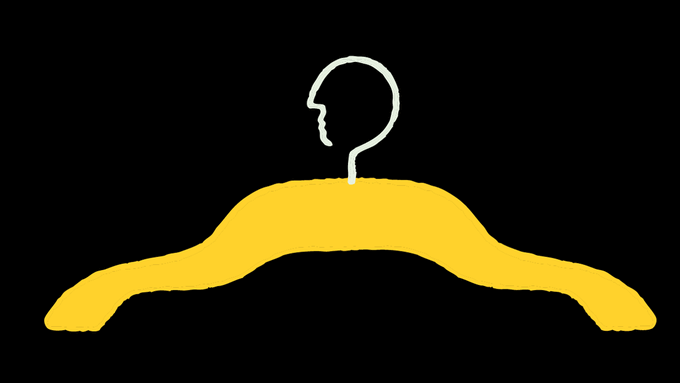


Career transition is the process of finding and moving into a new career. There is no set period of time for career transition and no limit to the number of times you might decide to change.
Shifting careers is often hard to explain. Whether you're moving from one department to another in your own company or starting over in an entirely different field, you're likely to face a litany of rejoinders: Why would you want to do that? Isn't that a little risky? Are you really qualified? Others won't raise any outward objections, but privately, you can tell they're skeptical.
Interestingly, the transition period may start years before you consciously decide to make any change (maybe even the first day you began your current career!) It can include daydreaming about something you'd love to do, meeting people in careers that spark an interest, reading books or seeing films about things you enjoy, etc. as well as actually trying things on for size. And it may continue all the way up to and even after starting your new career, when insecurities and self-doubts can still creep in.

Looking to transition to a new career?
You're not alone. A growing number of people, especially millennials, are jumping into new careers. But that doesn't mean a career change isn't a difficult process, especially if you're trying to move to an industry where you don't have much, if any, experience.
Are you considering a career transition? Evaluate your current state of readiness or urgency in making a transition. Here are three scenarios to help you decide if the time is right for you.
1. Short-term dissatisfaction or ennui: A project you're working on has stalled, you are out of sync with your manager, or stressors outside of work are leading to frustration at the office. If this is your situation, it might not be time for a career transition. However, it could be a great time to evaluate your career goals relative to your current role and responsibilities, and possibly re-engage your strengths to push through the current environment.
2. An extended sense of "stuck-i-ness": Management changes have led to a deprioritization of your work, you are no longer involved in critical conversations, or you routinely find yourself wanting more satisfaction from your work. It might be time to consider a career transition, either internally or externally.
3. Clear evidence of stalled progression: You've been passed over for a promotion more than once and you can't get actionable feedback about your work, or burnout has been your mode of work for a while. It's time to make a change.
Transition is an internal shift within you. It means you have reached a point where it is time to let go of an assumption, self-image, or dream.

A transition could be precipitated by an external change. For example, you could be laid off from work (more of a change), which could motivate you to step back from your busy life and assess if it is time to think about pursuing a latent passion/dream or shifting your work focus to have more meaning or balance for you.
This period of self-reflection could result in redefining who you are and what you do for work. It could ultimately result in a career transition to an entirely new field and a new role. In order to build anew, you need to dismantle and provide space in yourself and your life for the creative act of constructing a new career.
Transitions begin with a five-phase ending process.
1. Disengagement -
This is an actual break from the ordinary way of life as you know it -- separating yourself from activities, relationships, and settings that have been important, but are no longer working for you. Think of it as externally removing yourself from old systems and contexts.
2. Dismantling -
This involves the actual taking apart of your life as you used to know it before disengagement occurred. This can mean dismantling the world you operated in as well as the identity you had built in this world.
3. Disidentification -
If you think of disengagement as the external change that started the transition, you then can think of disidentification as the internal changes that alter the way in which you experience yourself. You begin to lose the old way of defining yourself, and you are no longer sure who you are. Giving up titles and roles are an important part of your identity, and it is important to disidentify from these during this phase.
4. Disenchantment -
This a true shift in your world view; things just don't look the same anymore. This can involve emotions such as disappointment and shock. It is a time to look below the surface of what you thought to be so. It is the sign that you are ready to see and understand more now.
5. Disorientation -
Disorientation is just what it sounds like - you don't know where you're going, what you should be doing, or what has meaning for

The most important step in getting others onboard with your career transition is crafting a compelling narrative. It's a tool often overlooked by professional reinventers, but it can be a critical determinant of success in winning others' support for your professional goals and vision for the future.
Making a career transition can be profoundly rewarding and a bit scary at the same time. Set yourself up for a successful transition by knowing the areas where you excel in the workplace and the areas where you want to grow professionally. You don't have to figure it all out on your own either. Consulting a career coach can help you discover the right opportunity more quickly or help you make a bigger change in direction with the support and resources you need.

Like any new endeavor, working with a coach can be challenging and even a little scary. But if you're brave, committed and curious, you'll find your coaching relationship can be a powerful catalyst to becoming the person you most want to be.
Adan's executive coaches have decades of experience working at the executive level with leading organizations around the world. We have expertise in leadership, productivity, organizational change, team building, marketing, sales and motivation.
Our on-the-job experience coupled with extensive knowledge of the markets and functional areas enables us to deliver a variety of practical, high-impact presentations that engage, enlighten and entertain.

